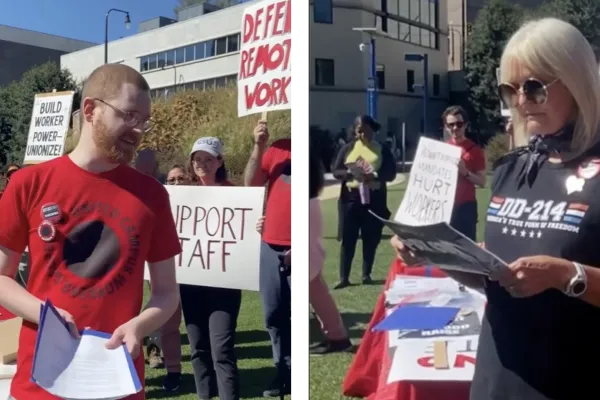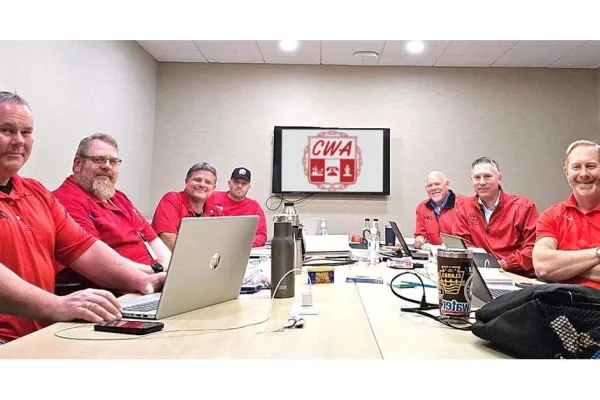HB 1576: Public Sector Collective Bargaining in GA

UCWGA is proud to announce its support for House Bill 1576, which if enacted, would provide public sector workers with collective bargaining rights in the state of Georgia. UCWGA worked with the Georgia AFL-CIO, the Atlanta North Georgia Labor Council, State Representative Bee Nguyen, State Representative William Boddie, and other legislative allies in getting the bill introduced at the end of the 2022 legislative session.
While public sector workers in Georgia have the right to form and join unions, the state does not provide these public sector unions with the right to bargain on behalf of their members over the terms of their contracts. In practice, this means the state has total control over workers’ wages and salaries, health care benefits, retirement funding, sick leave, and workplace health and safety.
If House Bill 1576 becomes law, Georgia will join 26 other states that allow public sector collective bargaining.
Researchers have found that workers represented by a collective bargaining agreement (CBA) have higher living standards. CBAs result in higher wages, better health benefits, working hour limits, and protection from workplace hazards. CBAs are legally binding, cannot be changed unilaterally, and subsequent contracts often build on the progress of previous negotiations.
Drawing on data from the Bureau of Labor Statistics, the International Association of EMTs and Paramedics reports the following differences between workers with and without collective bargaining rights:
On average, salaried workers covered by a Collective Bargaining Agreement (CBA) earned $10,400 more per year than those not covered by a CBA;
Workers covered by a CBA had greater access to healthcare coverage and at lower cost than those without a CBA;
Workers covered by a CBA had higher employer contributions to retirement plans and were likelier to have guaranteed pension plans than those without a CBA;
Workers with a CBA received more days of paid time off, including paid sick leave, than workers without a CBA.
Unions with collective bargaining rights not only provide benefits to unionized workers, they produce positive spillover effects for non-union workers as well. In industries and communities with high union membership, employers often increase wages and benefits for workers without a CBA to attract/retain workers and avoid union organizing efforts in their establishments.
Unions with strong contracts are good for their communities, too. Higher wages for workers leads to greater tax revenue for local communities, in turn leading to increased funding for public services, including for education, health care, and safety. Such community investments inevitably result in additional positive benefits, including better public health and more civic engagement.
Winning the right to collectively bargain for public sector workers is also a racial and gender justice issue. Women and Black workers are overrepresented in the public sector workforce compared to the private sector in Georgia. The percentage of women as a percentage of the public workforce in Georgia is 54% compared to 47% of the private sector workforce in the country as a whole.The share of Black workers in the public sector in Georgia is significantly higher than the percentage of Black workers in the private sector: 33% compared to 13%. A collective bargaining agreement for public sector workers, then, gives greater leverage to historically disadvantaged groups.
Please join us in our efforts to win collective bargaining rights for public sector workers in Georgia.
Click here to become a member of UCWGA.
With solidarity and persistence, we will pass House Bill 1576 and provide public sector workers with the right to bargain collectively in the state of Georgia.
This fall, we will be holding a virtual educational event on public sector collective bargaining and HB 1576. If you are interested in attending, please share your email address hereand we will keep you updated on the date and time of the event and how to gain access to it.
Georgia public universities’ ‘return to office’ mandate may spark exodus


